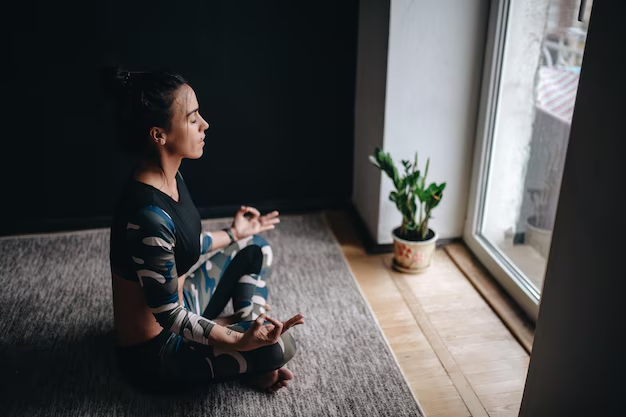Discovering Peace: Effective Strategies to Alleviate Anxiety
Feeling overwhelmed by anxiety can be challenging and isolating, but you are not alone. Many people experience anxiety, and the good news is there are various ways to manage and reduce these feelings. This guide provides a comprehensive overview of what helps anxiety from multiple angles, offering practical techniques and insights to empower you on your journey toward tranquility.
Understanding Anxiety
Before diving into solutions, it's crucial to understand what anxiety is. Anxiety is a natural response to stress or perceived danger, characterized by feelings of tension, worried thoughts, and physical changes like increased blood pressure. It can stem from various sources, including personal stressors, environmental factors, or even biological influences.
Common Signs of Anxiety
Recognizing anxiety is the first step toward managing it. Key indicators include:
- Persistent worry or fear
- Restlessness or nervousness
- Difficulty concentrating
- Increased heart rate
- Muscle tension
- Trouble sleeping
If these symptoms persist or interfere with daily activities, it's essential to explore ways to manage or reduce anxiety.
Lifestyle Modifications to Combat Anxiety
Prioritizing Physical Health
Physical well-being significantly impacts mental health, and adopting certain lifestyle changes can help alleviate anxiety.
Regular Exercise
Engaging in physical activity is one of the most effective ways to combat anxiety. Exercise releases endorphins, chemicals in the brain that act as natural painkillers and mood elevators. Aim for at least 30 minutes a day of activities like walking, jogging, cycling, or yoga to boost mood and reduce stress.
Balanced Diet
A nutritious diet supports both physical and mental health. Focus on consuming a variety of foods, including fruits, vegetables, whole grains, lean proteins, and healthy fats. Certain foods, like those rich in omega-3 fatty acids (e.g., salmon, chia seeds) and probiotics (e.g., yogurt, sauerkraut), can reduce anxiety symptoms.
Sleep Hygiene
Quality sleep plays a critical role in emotional regulation. Establish a consistent sleep routine, create a relaxing bedtime environment, and avoid screens before sleep to improve sleep quality. Aim for 7-9 hours of sleep per night for optimal mental health.
Mindfulness and Relaxation Techniques
Incorporating mindfulness and relaxation into your daily routine can dramatically decrease anxiety levels.
Meditation and Deep Breathing
Practicing meditation and deep breathing exercises can help calm the mind and body. Techniques such as focused breathing, progressive muscle relaxation, or a body scan can significantly reduce tension and anxiety.
Yoga and Tai Chi
These holistic practices combine physical movement, meditation, and breathing exercises to enhance physical and mental well-being, reduce stress, and promote relaxation.
Visualization
Visualization involves imagining a peaceful scene or scenario. This mental escape can provide relaxation and diminish the sense of anxiety.
Cognitive and Behavioral Strategies
Cognitive Behavioral Therapy (CBT)
CBT is a structured, goal-oriented psychotherapy that addresses anxiety by changing negative thought patterns and behaviors. It encourages the development of coping skills and strategies to manage anxiety triggers.
Journaling
Writing down thoughts and feelings can provide an outlet for anxiety and help clarify what triggers it. Keeping a journal can identify patterns and fears, making them easier to manage.
Limiting Negative Media Intake
Constant exposure to negative news can heighten anxiety. Be mindful of media consumption and take breaks if necessary to focus on more positive or calming content.
Building a Strong Support System
Connecting with others can provide relief from anxiety and foster a sense of community and understanding.
Talking to Friends and Family
Expressing feelings to trusted friends or family members can offer support and perspective, helping to alleviate anxiety.
Support Groups
Joining a support group can create a sense of belonging and provide shared experiences and coping strategies.
Seeking Professional Help
When anxiety becomes overwhelming, and self-help strategies aren't enough, reaching out to a mental health professional is a worthwhile step. Therapists can provide personalized guidance and techniques to manage anxiety effectively.
Alternative Approaches
Although alternative options should be approached with caution and under the guidance of a healthcare professional, some individuals find relief through complementary approaches.
Herbal Remedies
Certain herbal remedies, such as chamomile, valerian root, and lavender, are known for their calming properties and can support anxiety reduction.
Aromatherapy
Using essential oils can promote relaxation and reduce stress. Scents like lavender, bergamot, and sandalwood are particularly beneficial for anxiety.
Acupuncture
This ancient practice involves inserting very thin needles through the skin at strategic points, which can help manage the nervous system and promote relaxation.
Harnessing Technology
Apps for Anxiety Relief
Many mobile apps offer tools for anxiety management, including guided meditations, breathing exercises, and mood tracking. Popular options are Calm, Headspace, and Insight Timer.
Virtual Therapy
Virtual therapy offers convenient access to licensed therapists, providing a flexible and accessible option for those seeking professional support.
Conclusion: Empowering Your Journey to Calmness
Anxiety, while a common aspect of life, doesn't have to define or limit your experiences. By incorporating these strategies and techniques into your life, you can significantly reduce anxiety and regain control over your mental health. Remember, finding what works for you might take time and experimentation. Listen to your body, lean on your support system, and pursue what brings you peace.
Key Takeaways to Manage Anxiety 🌟
- Exercise regularly 🏃 – Boost mood with at least 30 minutes of physical activity daily.
- Eat mindfully 🥗 – Support mental health with a balanced, nutritious diet.
- Prioritize sleep 💤 – Aim for 7-9 hours for optimal rest and mental clarity.
- Practice mindfulness 🧘 – Utilize meditation, yoga, and breathing exercises.
- Seek support 🤝 – Leverage friends, family, and professional help when needed.
- Explore alternatives 🌿 – Consider herbs, aromatherapy, and acupuncture safely.
- Utilize technology 📱 – Benefit from apps and virtual therapy for additional support.
Start your journey with small steps, and remember, changing habits can lead to profound shifts in anxiety management. 🌈

